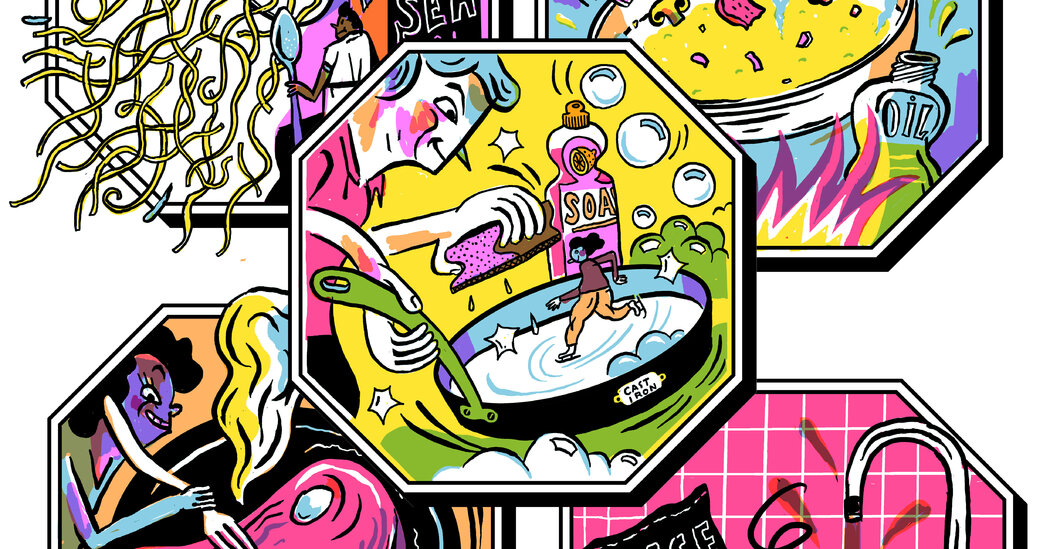
Food myths come from many sources, and American cooks (including me) have swallowed lots of them. Some of them used to be truths, like the notion that you should eat oysters only in “R” months (before refrigeration, shellfish were safer to eat in the winter). Some come from restaurant kitchens, like the rule against washing mushrooms. (When you’re ready to use them, it’s perfectly fine to rinse off the dirt. Just don’t store them after washing; they will spoil once wet.) And some just derive from superstition, like the idea that brown eggs are healthier than white ones. (They are identical inside the shell; the color is determined by the hen’s feathers.)
The five notions below are the ones I’ve believed in the longest — and been most mystified by. I consulted the latest studies, called up experts, bought two extra rice cookers and tracked down farmers to find out once and for all: truth or myth?
❖
Truth or myth: Never use soap to wash a cast-iron pan.
Apart from the best way to cook rice, nothing gets cooking-science types more riled up than cast-iron pans. If you haven’t cooked in one, you might wonder what all the fuss is about, both on the cooking and the cleaning front.
For cooking, cast iron has a great weight and a porous surface — slightly rough, compared with smooth stainless steel or a nonstick coating — that makes it ideal for searing. The surface absorbs oil, which hardens over heat and over time into a shiny, nearly nonstick patina. This process is called seasoning, not in the sense of adding salt to taste but in the sense of developing a well-used, trusted tool.
I have been told that a truly well-seasoned cast-iron pan can cook an omelet without sticking, but I am too chicken to try. I have also been told that the best way to clean my skillet is to boil it, to bury it in the sand, and to never wash it at all. None of these seem like practical options.


